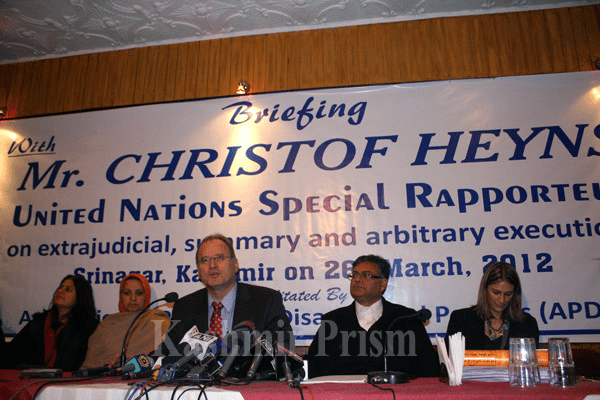LONDON, UK—The extent and character of the latest addition to a persistent pattern of violence against the Sikhs highlights the deep sense of grievance about the gross violations of human rights in India.
Recent episode of brutality targeting Sikhs in Tilak Vihar colony in West Delhi area, coupled with accounts of local residents, suggest that Sikhs continue to be the target of systematic repression by the authorities.
A number of reports emerging from Delhi detailed the complete absence of action of government officials against those who led the attacks on Sikhs. Several issues of concern with regard to intolerance and discrimination based on religion or belief remain pertinent, especially in the context of certain religious minorities.
Violations of the right to life by State actors
Reports by official Commissions of Inquiry, Committees and civil society organizations have, regarding many major incidents of communal violence, indicated that the State and its agents, particularly the police forces, willfully did not exercise diligence in its duty to protect, and thus tolerated attacks on the life and rights of religious minorities, and, in some cases engaged, in active support.
UN Special Rapporteur on extrajudicial, summary or arbitrary executions –
Key findings of Christof Heyns regarding protection of the right to life in India
The 2013 report released in late April by the Special Rapporteur “is a clear exposure of the role played by the police and the government in the communal violence that has plagued India.”
According to the MHA, 580 communal incidents occurred in India in 2011, with 91 lives lost.
“The Special Rapporteur was informed that attacks of communal violence are often planned in order to target members of a particular group or acquire its property. For instance, Hindu fundamentalists reportedly carried out attacks against Dalits, who had changed religion to escape the degrading treatment associated with being a Hindu Dalit.”
Shaky record in failing to protect people from mass violence and to account for its own failures
The Special Rapporteur is concerned with the “obstacles to hold public servants, including members of the security forces, accountable, particularly due to statutory immunities provisions.”
“The fight against impunity in India is faced with challenges at various stages of the accountability process. At the stage of reporting a crime, the Special Rapporteur has heard numerous allegations that the security forces refuse to register FIRs, including those related to killings or death threats. Persons attempting to register FIRs are often subjected to threatening treatment or to the fact that their complaints are not given serious consideration.”
“Impunity represents a challenge in India not only in cases of recent violations of the right to life, but also of those perpetrated in the past in respect of which effective investigations and prosecutions still have not been conducted.”
The Special Rapporteur heard of the case of Sumed Saini, accused of human rights violations in Punjab
“The situation is aggravated by the fact that security officers who committed human rights violations are frequently promoted rather than brought to justice. The Special Rapporteur has heard of the case of Mr. Sumed Saini, accused of human rights violations committed in Punjab in the 1990s, who was promoted in March 2012 to Director General of Police in Punjab. Promoting rather than prosecuting perpetrators of human rights violations is not unique to Punjab. The Special Rapporteur heard this complaint from families of victims throughout the country.”
“Delay in judicial proceedings constitutes one of India’s most serious challenges and has clear implications for accountability. For example, lengthy and ineffective proceedings exist in Punjab where large-scale enforced disappearances and mass cremations occurred between the mid-1980s and 1990s. The lack of political will to address these disappearances is evident in a context where steps to ensure accountability have been reportedly inconclusive.”
“The Special Rapporteur is seriously concerned at the extended timeframe of investigations in cases involving communal riots, violence and massacres such as those which occurred after “Operation Blue Star” in 1984, after the destruction of Babri Masjid in 1992 and after the Godhra train burning incident in 2002. All of these incidents continue to haunt the people affected by them and the system of impunity emboldens forces of intolerance. It is important to draw appropriate lessons from these events in order to prevent the recurrence communal.”





